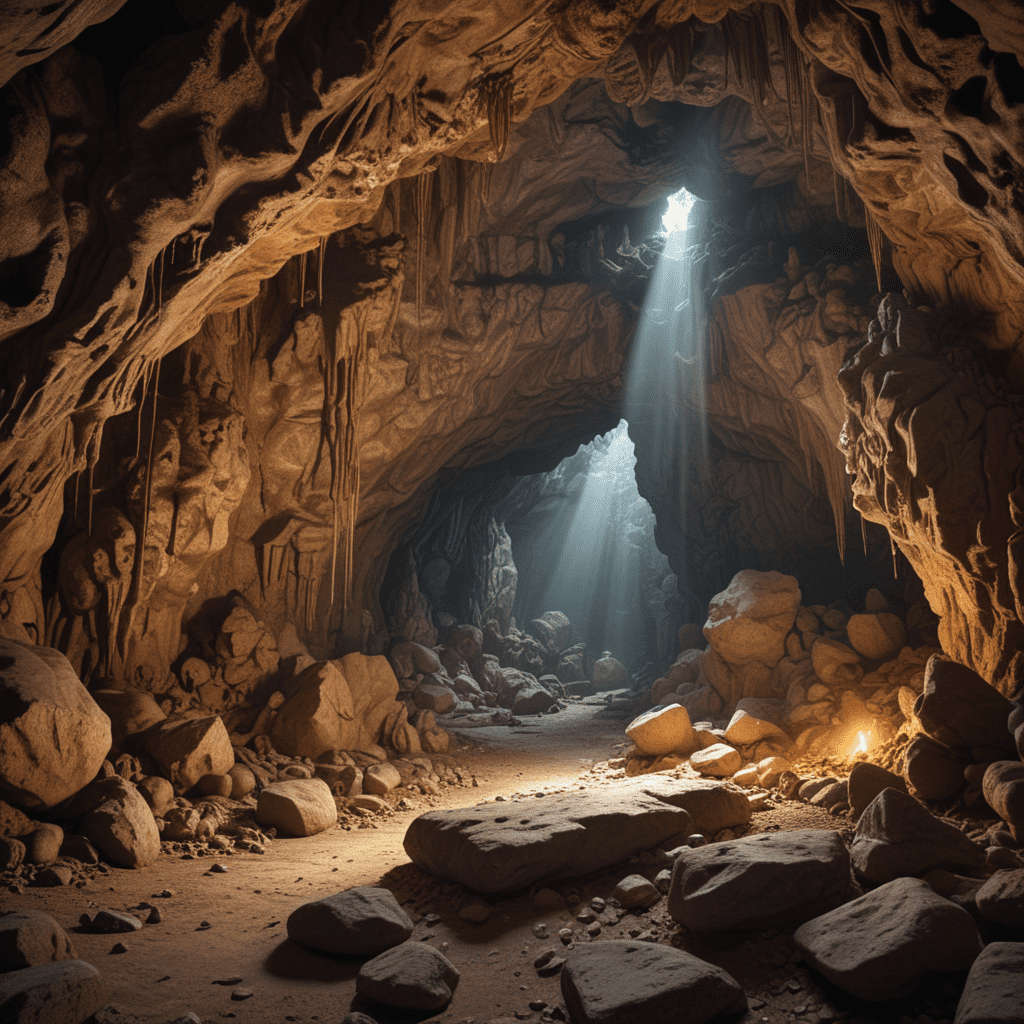The Symbolism of Caves in Slavic Mythology
Caves hold a prominent place in Slavic folklore, imbued with rich symbolism that has shaped the cultural heritage of Slavic peoples. From ancient legends to modern interpretations, caves have been revered as thresholds to other realms, sanctuaries for spiritual practices, and repositories of knowledge and secrets. Understanding the symbolism of caves in Slavic mythology provides insights into the beliefs, customs, and worldview of these ancient cultures.
Caves as Thresholds to the Otherworld: The Underworld and Celestial Realms
In Slavic mythology, caves serve as gateways or portals between the human world and supernatural realms. They are believed to lead to the Underworld, a realm of darkness and the dead, and to celestial realms inhabited by gods and spirits. Caves are often depicted as mysterious and dangerous places, where ordinary mortals must tread cautiously.
Caves as Sanctuaries and Places of Initiation
Caves provide a sacred and secluded space for spiritual practices and rituals. They are often used as sanctuaries for worship, meditation, and initiations into secret societies. Caves are believed to possess a special energy that facilitates communication with the supernatural world and promotes spiritual growth and transformation.
Caves as Repositories of Knowledge and Secrets
Slavs believed that caves held secrets and knowledge from ancient times. They were seen as repositories of wisdom, folklore, and hidden treasures. In some stories, caves are said to contain ancient texts or artifacts that hold the key to understanding the mysteries of the universe.
Caves as Homes of Supernatural Creatures: Dragons, Fairies, and the Dead
Caves are often associated with supernatural creatures in Slavic mythology. Dragons, known as Zmey or Smok, are legendary creatures believed to dwell in vast underground caves, guarding treasures and abducting young women. Fairies, also known as Rusalki or Vila, are believed to reside in caves near water sources, dancing and singing to lure mortals to their realm. Caves are also seen as resting places for the dead, believed to house the spirits of ancestors and otherworldly beings.
Caves as Places of Transformation: Physical, Spiritual, and Ritualistic
Caves symbolize transformation and transitions in Slavic mythology. They are often depicted as places where physical, spiritual, and ritualistic changes occur. Heroes and heroines may enter caves to undergo trials or emerge reborn with newfound strength and wisdom. Caves serve as ritualistic spaces for initiations, healing ceremonies, and communication with the supernatural world, facilitating a transformative experience for participants.
Caves as Healing Spaces and Sources of Wonder
Slavic folklore attributes healing powers to caves. They are believed to possess a special energy that can cure physical ailments and promote spiritual well-being. People would often visit caves seeking relief from diseases, infertility, or mental distress. Caves are also seen as sources of wonder and inspiration, with their hidden chambers and enigmatic formations sparking awe and imagination.
Caves as Locations for Rituals: Sacrifices, Divinations, and Pilgrimages
Caves held significant ritualistic importance in Slavic cultures. They were chosen as sites for sacrifices to appease gods and spirits, with offerings of food, animals, or precious objects presented in these sacred spaces. Caves were also used for divination practices, as shamans or priests communed with the supernatural world within their depths. Certain caves became pilgrimage destinations, attracting people from far and wide to witness their extraordinary energy and seek miracles.
Conclusion: The Enduring Legacy and Modern Interpretations of Cave Symbolism
The symbolism of caves in Slavic mythology continues to endure in modern culture. Caves remain captivating places, inspiring artists, writers, and spiritual seekers alike. From the ancient tales of heroes and supernatural beings to contemporary interpretations emphasizing ecological conservation and mindful exploration, caves maintain their enigmatic allure. Understanding the rich symbolism associated with caves provides a deeper appreciation for the cultural heritage and enduring fascination with these mysterious and mystical spaces.
FAQ
What is the significance of caves in Slavic mythology?
Caves hold a prominent place in Slavic mythology, symbolizing thresholds to other realms, sanctuaries for spiritual practices, repositories of knowledge, and homes of supernatural creatures.How are caves connected to the Underworld and celestial realms?
Caves are believed to serve as gateways between the human world and the Underworld, as well as celestial realms inhabited by gods and spirits.What is the symbolism of caves as sanctuaries and places of initiation?
Caves provide a sacred and secluded space for worship, meditation, and initiations into secret societies, facilitating communication with the supernatural world and spiritual growth.
- What is the role of caves in Slavic rituals and practices?
Caves are used for sacrifices, divination practices, and pilgrimage destinations, holding significant ritualistic importance in Slavic cultures.



